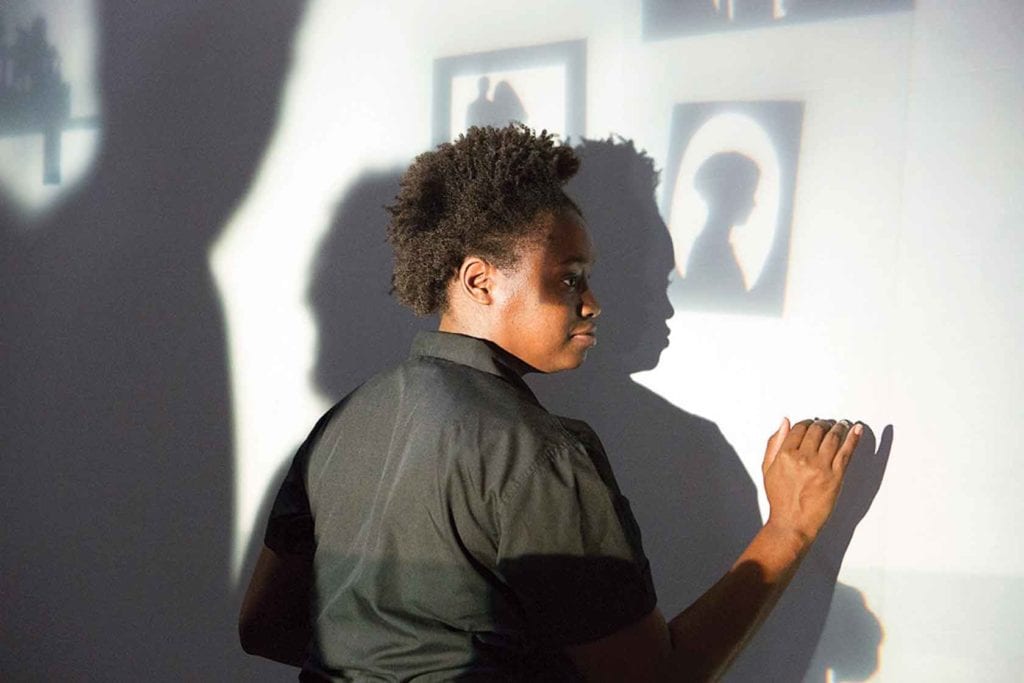Silhouettes & symbolism
ArtsEmerson’s ‘End of TV’ examines media and humanity

Live theater takes on a whole new meaning in Manual Cinema’s production “The End of TV,” presented by ArtsEmerson January 16-27 at the Emerson Paramount Theater. Void of dialogue, the show uses shadow puppetry, silhouettes, a live band and projection to tell the story of two women who were once workers at the same auto plant in a fictional Midwestern city. Flo, elderly and white, slips between reality and her television screen while Louise, young and black, struggles to make ends meet.
“My character ends up taking a job at Meals on Wheels and the older character is on her route,” says Sharaina L. Turnage, who plays the younger of the protagonists. An unlikely relationship grows between the two women, one at the end of her life and the other at the beginning of a new chapter in hers.
Media — in particular, television — play a crucial role in the show. Not only are Flo’s memories becoming mixed with the television commercials she sees, television projections often interrupt scenes between the characters. The show is set in the 1990s, when television was the dominant media to lose oneself in. Now, the digital ways to ignore reality are endless.
Alternative view
The organic relationship between Flo and Louise provides a sigh of relief from the otherwise electronic and inauthentic world of television. Turnage says, “In this show it’s OK to show emotions and to care for someone. We need to care for each other, no matter what age we are, no matter what race we are.” The show holds a mirror up to our increasingly technology-dependent society and reminds it not to lose all humanity and personal connection.
The production itself is a feat of artistic dexterity. Like the popular 2018 production “Ada/Ava” by Manual Cinema, the moving silhouette effect is achieved by the artists wearing masks and performing at rapid-fire pace behind an illuminated screen. Similarly, the hidden ensemble acts out the commercials against a green screen just steps from the audience’s view. Despite the intense backstage work required, the effect is elegant and seamless. The onstage five-piece band performs a collection of original 1970s R&B-inspired art pop songs, which serve as a sort of thematic guide.
Turnage hopes that the production inspires audiences members to give back to their communities and to forge personal connections in this overwhelmingly digital age. She says, “Reach out and volunteer at different centers. Your presence might be what saves someone’s life.”








